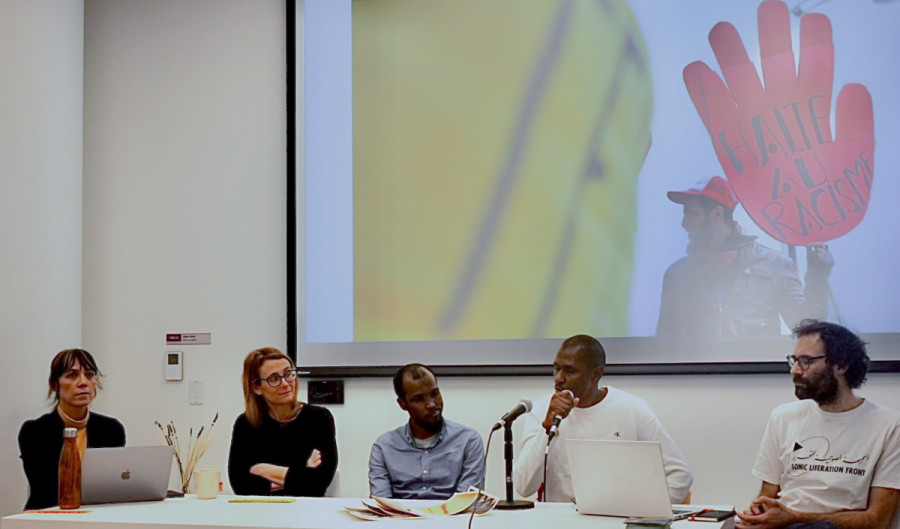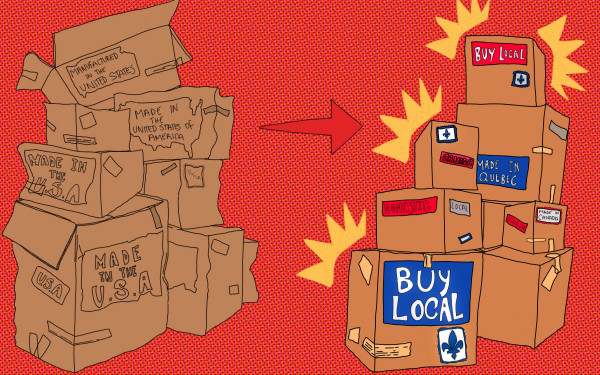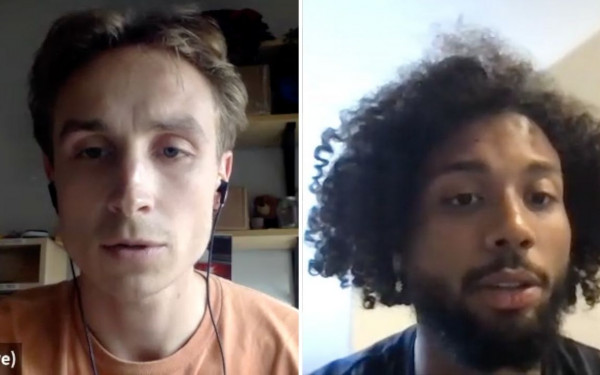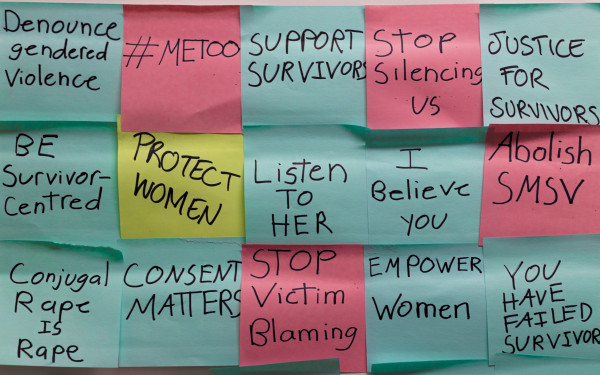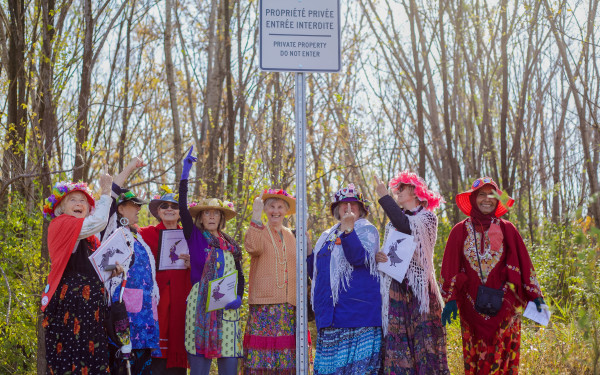Guinean Refugees Face Barriers to Permanent Residency
Organizers with #StatusForAll Gather for Social Justice Centre Panel on Guinea
On Feb. 10, Concordia’s Social Justice Centre and the SHIFT Centre for Social Transformation presented a conference on the ongoing struggles of Guinean asylum seekers in Montreal.
Asylum seekers from Guinea have been heavily involved in Montreal’s #StatusForAll movement, the purpose of which is to obtain permanent status and access to basic human rights.
Guinea gained its independence in 1958 after it rejected Imperial France’s loi-cadre policies, which offered French colonies the possibility to gain progressive independence by adopting constitutions as members of the French community, or immediate independence by voting “no” to the referendum.
Since its independence, the West African nation has undergone multiple military and autocratic regimes characterized by the violation of human rights, poverty of its inhabitants and the use of violence against political opposition.
Concordia welcomed Mohamed and Lamine Barry—co-founders of the Statut pour les guinéens committee, activists in the #StatusForAll campaign and organizers with Immigrant Workers Centre as well as Solidarity Across Borders—to discuss the situation. Also present at the conference was Sophie Toupin, a postdoctoral researcher at Concordia focusing on the link between communication technologies and activism.
The other panelists were Marisa Berry Méndez, an advocate and activist for human rights currently working with Amnistie internationale Canada francophone and Stefan Christoff, a media maker, community activist and musician studying history and works with the Social Justice Centre.
Méndez explained that despite the constant change in political forces in Guinea, there is “a constant, outright violent repression of any opposition to government, arbitrary detention, ill treatment and torture in detention, terrible conditions in prison and just an ongoing crisis of impunity” that has caused a wave of emigration.
In 2010, during the military junta led by Moussa Dadis Camara, state forces repressed “a peaceful demonstration in an extremely bloody way” that killed 150 people and resulted in the sexual violence of 100 women, added Méndez. Some of Amnesty’s current campaigns in Guinea aim to raise awareness around sexual violence—such as female genital mutilation and the persecution of LGBTQIA2S+ people—through policy changes.
“What we fear through deportation is our security in Guinea,” said Lamine Barry.
Lamine pointed out the difficulties he faced as an immigrant to obtain his status, even though he felt well-integrated in Montreal society as a worker and as part of a community. After losing a friend who suffered an accident following his expulsion from Canada, Lamine began advocating that everyone should be able to obtain legal status and regularization from the Canadian government.
Méndez emphasized that Quebec’s policies on immigration are the most restrictive for asylum seekers coming to Canada.
“The rhetoric of the current government [is] all about welcoming fewer immigrants,” she said. “Whereas on the flip side, there's a huge mushrooming of the number of temporary foreign workers who are coming.” She added that migrants with jobs in manual labour have nearly no way to bring their families over.
“No one is safe from the injustice of the federal government and the agents that the government employs—they don't care,” said Mohamed Barry.
Mohamed talked about the benefits the Canadian government sees in charging $515 for an asylum application.
He also criticized the prices lawyers charge asylum seekers and the profits made by people who are detached from the suffering of those who need their help most.
Frantz André, an audience member, added during the Q&A period that immigrants can’t afford the cost of living and often think of returning to their home country where they could face danger because they can’t afford to live in Quebec.
Mohamed explained that some landlords in Quebec abuse migrants to make more money by asking for excessive deposits and unreasonably increasing rent. Furthermore, some lawyers use similar tactics regarding the way they deal with the files of asylum seekers.
Christoff explained that during the pandemic, the activists with the Immigrant Workers Centre tried to draw attention through a press conference on the non-status workers, particularly from West Africa.
He highlighted that social injustice runs deep for migrants and some people take advantage of their vulnerability for economic purposes. A collection of photos and posters taken by the social activists was hung all over the walls of the SHIFT Centre on Friday.
Sophie Toupin invited the audience to listen to the radio show Amandla!, the Zulu word for power. On air, hosts talk about current affairs happening in African countries, both in English and French. The next episode comes out on Feb. 15 at 7 p.m. The show was co-created in 1987 by Gwen Schulman, a student and coordinator of an anti-Apartheid group at McGill University.

